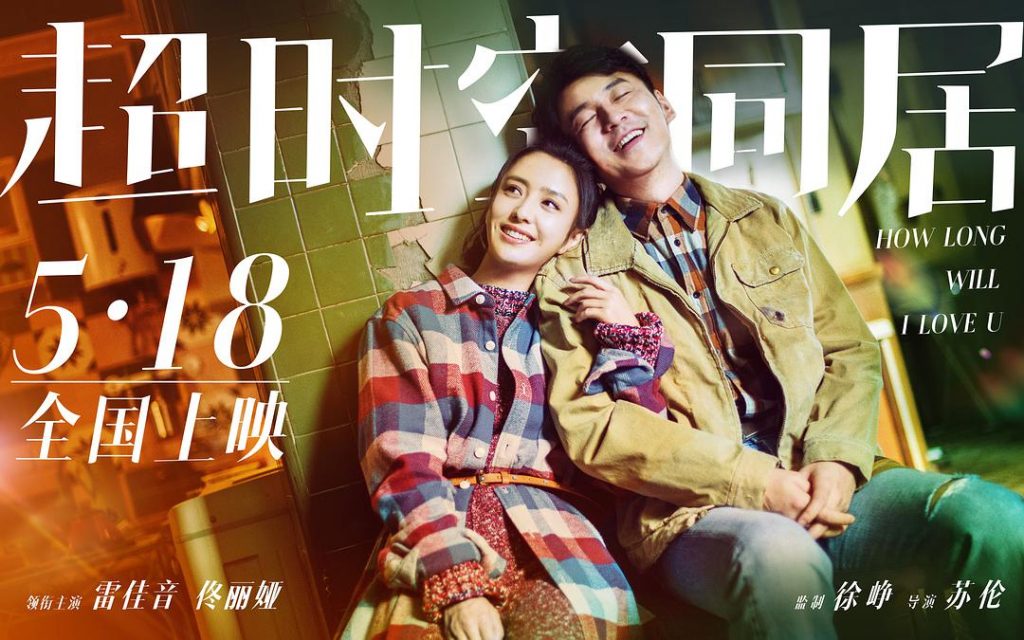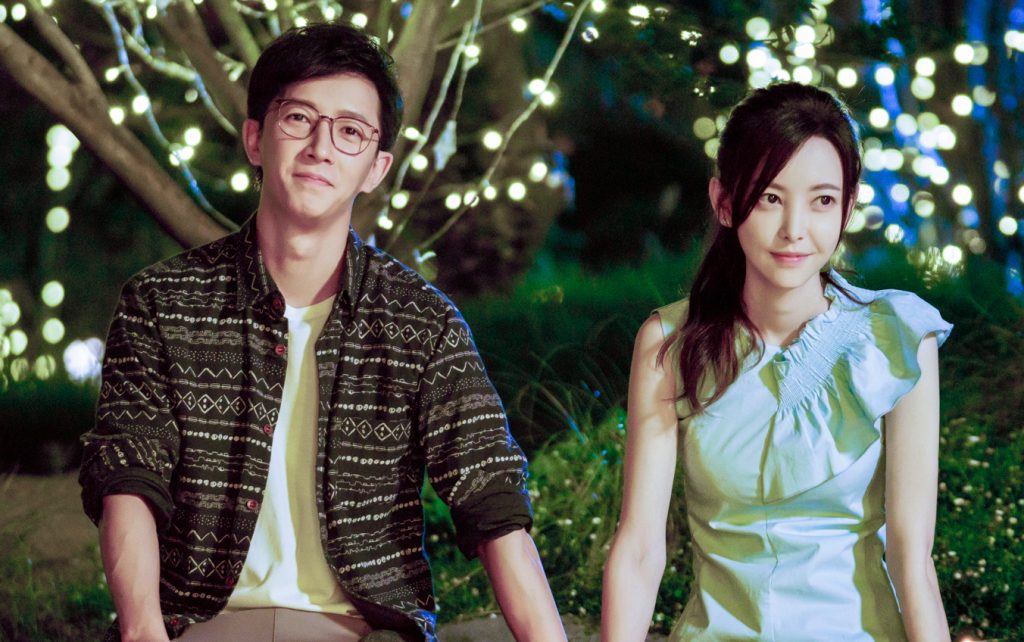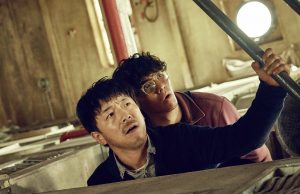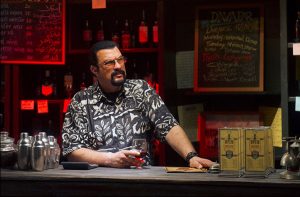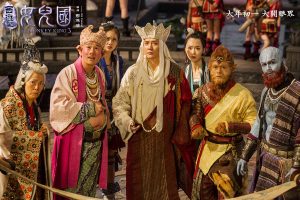Every day while CFI’s Hollywood readers take in the business of the Chinese film industry, the actual movies can sometimes seem exotic or remote. But in major US cities, mainstream Chinese films are increasingly available: thanks to Wanda’s purchase of AMC and distributors like China Lion, they get American theatrical releases practically simultaneous to their premieres at home. Though they receive virtually no publicity outside the non-Chinese community, these films are more than worth seeking out by anyone serious about engaging the Chinese industry, understanding the Chinese sensibility and familiarizing themselves with China’s talent pool. Periodically, CFI will review and point readers in the direction of noteworthy US releases of contemporary commercial and independent Chinese titles.
Despite some lapses in the script, this Chinese time-travel farce has sufficient energy and charm to make it agreeable, sprightly, undemanding summer fare.
Writer-director Lun Xu’s time-traveling rom-com How Long Will I Love U is set in two eras. In the present day, pert, pretty, acquisitive Gu (Liya Tong) is determined to lead the good life in the worst way, brazenly hunting on the web for a sugar daddy who will esconse her in a mansion in exchange for marriage. Meanwhile, back in 1999, Lu (Jia Ying Lei), a terminally unsuccessful designer/developer, realizes he just may be able to fund his projects by extorting a co-worker he overhears plotting against their boss.
One morning, through a glitch in the time continuum, Gu and Lu wake up in the same bed. They subsequently throw their desperate lots together, and of course hesitantly fall in love.
Lun Xu has fashioned a bouncy farce, set in a highly original and quirky double world which, if you don’t examine the spotty narrative too closely, is executed and acted with such charm that you may find yourself smiling throughout. The time-travel scenes have a singular random, kaleidoscopic and quite good look to them. (If Gu is the first to leave the apartment, it’s 2018, and when Lu exits it’s his own time frame waiting outside.) The modern, gleaming China of today is presented in a particularly glossy fashion that makes it the perfect setting for these chronologically skewed high-jinks.
Tong is a standout, quite lovely and graceful, and possessing that maddening, totally wrongheaded self-assurance shared by some of the greatest screwball-comedy heroines, like Carole Lombard’s Irene Bullock in My Man Godfrey or Katharine Hepburn’s Susan Vance in Bringing Up Baby. In real life, you’d probably want to just shake them, but on the screen they somehow entrance. Lei is an agile physical comedian, and rather revels in the high-strung nerdiness of his character, unwillingly smitten by this pushy, crass girl and yet sharing a semi-fathomable but definite chemistry with her.
-This article first appeared on Film Journal.
WHAT DOES THE GRADE MEAN?
Here are some recent & modern-era vintage Chinese and Hong Kong films for comparison
- A+
- PLATFORM (2000, dir Jia Zhangke)
- THE WORLD (2004, dir. Jia Zhangke)
- DRUNKEN MASTER 2 (1994, dir. Lau Kar Leung & Jackie Chan)
- KUNG FU HUSTLE (2004, dir. Stephen Chow)
- A
- LET THE BULLETS FLY (2010, dir Jiang Wen)
- THE MERMAID (2016, dir. Stephen Chow)
- A TOUCH OF SIN (2013, dir. Jia Zhangke)
- STILL LIFE (2006, dir. Jia Zhangke)
- MOUNTAINS MAY DEPART (2015, dir. Jia Zhangke)
- LITTLE BIG SOLDIER (2010, dir. Ding Sheng)
- EXTRAORDINARY MISSION (2017, dir. Alan Mak & Anthony Pun)
- MR SIX (2015, dir. Guan Hu)
- A WORLD WITHOUT THIEVES (2004, dir. Feng Xiaogang)
- SUZHOU RIVER (1999, dir. Lou Ye)
- HOUSE OF FLYING DAGGERS (2004, dir Zhang Yimou)
- RAISE THE RED LANTERN (1991, dir. Zhang Yimou)
- A-
- DUCKWEED (2017, dir. Han Han)
- I BELONGED TO YOU (2016, dir. Zhang Yibai)
- B+
- THE GREAT WALL (2016, dir. Zhang Yimou)
- OLD STONE (2016, dir. Johnny Ma)
- CRAZY STONE (2006, dir. Ning Hao)
- GO, LALA GO (2010, dir. Xu Jinglei)
- B
- KUNG FU YOGA (2017, dir. Stanley Tong)
- RAILROAD TIGERS (2016, dir. Ding Sheng)
- THE WASTED TIMES (2016, dir. Cheng Er)
- CHONGQING HOT POT (2016, dir. Yang Qing)
- MONSTER HUNT (2015, dir. Raman Hui)
- B-
- JOURNEY TO THE WEST: THE DEMONS STRIKE BACK (2017, dir. Tsui Hark)
- SOME LIKE IT HOT (2017, dir. Song Xiaofei & Dong Xu)
- BORN IN CHINA (2016, dir. Lu Chuan)
- D-
- TINY TIMES (2013, dir. Guo Jingming)


